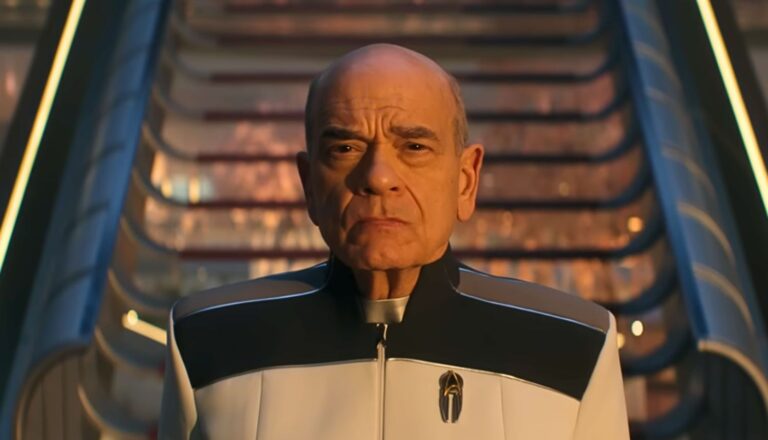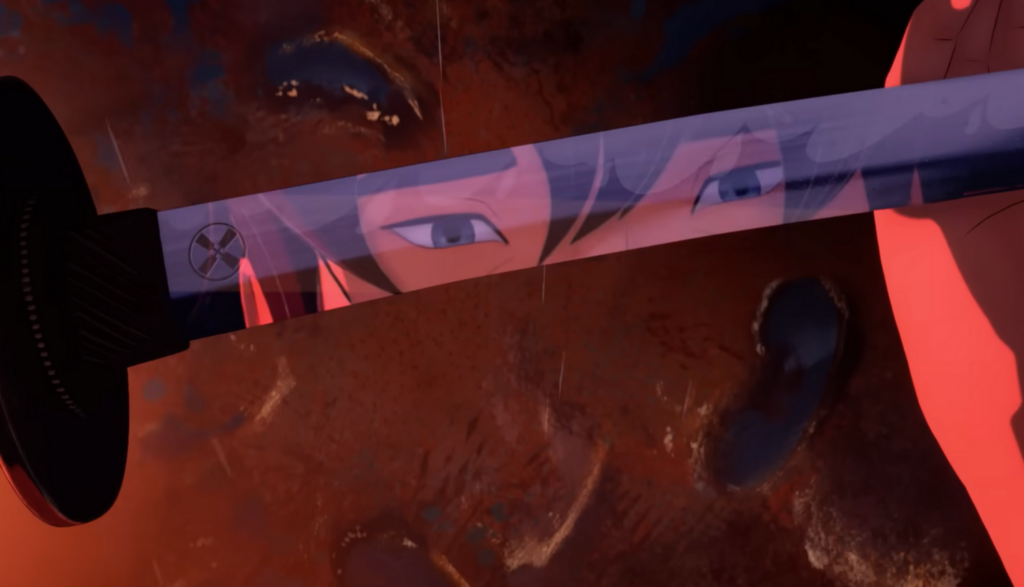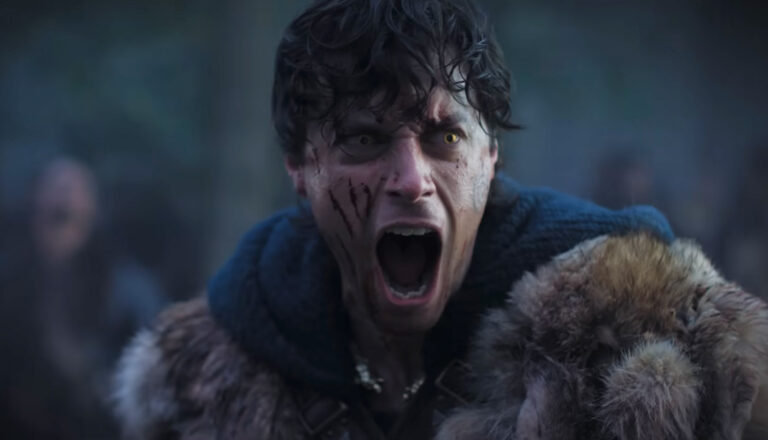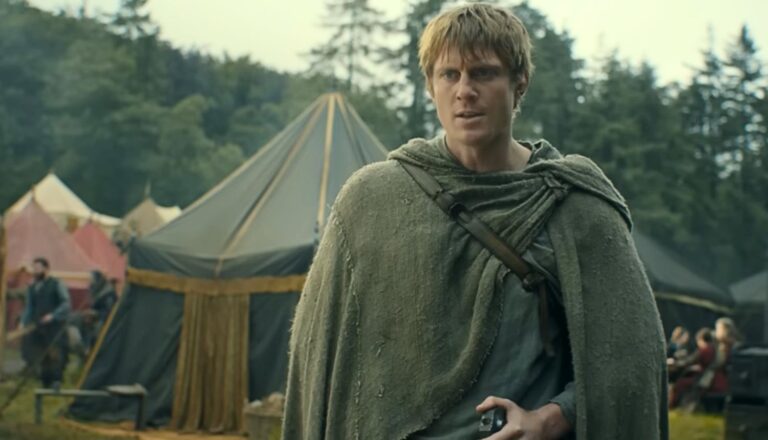
Star Trek: Starfleet Academy
In Star Trek: Starfleet Academy, Paramount+ introduces a new generation of Federation cadets who train to make a positive difference in the universe.

In Japan, few are feared more than the samurai. And among samurai, few are feared more than Mizu, the “Blue Eye Samurai.”
She’s so feared because of how she grew up. In 1600s Japan, there were few people other than the Japanese. ButMizu is of mixed race, the illegitimate child of a white man and a Japanese woman. When we first meet the child, it doesn’t seem like either of her parents were around to take care of her. Her father, at least, was off doing whatever pleased him. And as the orphan grew up, she was the subject of many brutal attacks—until she was taken in by a blind sword maker.
As his apprentice, Mizu learned the art of sword crafting. Through spying on his clientele, she learned how to swordfight. And when she was sufficiently trained in both, she decided to head out to slay her enemies.
And who are these enemies?
They’re the four white men said to be in the country. Because while Mizu doesn’t know their names, she does know that one of them is her father—a wicked man who cursed her with her mixed-race heritage.
And for that, the “white devils” must die.
Animation, I think, often misled people in the past. Whether it was due to the prevalence of family friendly Disney movies or the sheer number of animated children’s shows, such content might haven initially given us a false sense of security that, content-wise, the show couldn’t be that bad.
But today, animation isn’t as innocent as it once was.
Take Rick & Morty, whose nihilistic worldview is ever-present within its depressed and always-dying characters. Or consider Big Mouth, a show that sexualizes minors but attempts to claim it’s alright because they’re animated.
Well, add Blue Eye Samurai to that list of content-soaked adult cartoons.
We’ll start by giving the show credit for its portrayal of the grimmer side of samurai history. It doesn’t glorify such a life, pretending that it was simply a constant battle for honor. Instead, it reveals the exploitation and depravity of which many in that time experienced.
But therein also lies the content issues. Because when Mizu or someone else slices off someone’s fingers, you’ll see them fall off the hand. When someone’s bone is snapped, you’ll see it stick out of his arm. And when someone is gutted on the street, you’ll see as his bowels splash to the ground. The artists of this show have decided to not be modest in the bloodshed.
Speaking of modesty, viewers will see full frontal male and female nudity in almost every episode. Characters take trips to brothels, and long sex scenes are graphic and frequent. Viewers will hear some heavy swearing and see drug use, too.
No matter how your katana slices it, that’s a whole lot of content with which to deal. Perhaps it’s best to simply say goodbye to Blue Eye Samurai.
Mizu begins her journey to kill the four white men who live in Japan.
We see full frontal nudity of both men and women. A couple naked women in a brothel teach an invalid how to have sex. A man named Hachiman the Flesh-Trader sells women to brothels. Prostitutes make suggestive comments referencing sex. A father tells his daughter that he may as well marry a man, since his daughter will “end up in a brothel with him anyway, so would you rather be his wife or his wh-re.”
A man’s fingers are cut off by a sword, exposing bone and spilling a lot of blood. Other men attack Mizu, and she dispatches them in various gruesome ways. One man’s arm is snapped, and his bone shows through his skin. A couple men have their teeth ripped out, and one tooth pierces another man’s eye. Someone is hit in the crotch. Mizu pictures various scenarios in which she is slain. Mizu stiches up a sword wound on her shoulder. Mizu is attacked for being of mixed race. A child is punched. We hear a reference to suicide.
We’re told that the sword is the “soul of the samurai.” A swordsmith explains that some impurities should be left in a sword to strengthen it, as “we must leave something of how God made it.” People pray at shrines. Someone is called a “white devil” for being white. A meteorite smashes to the earth, and it’s called a “treasure from the heavens.” We hear about journeying to a shrine. Someone is described as looking like an onryō, a Japanese ghost who seeks revenge due to trauma in life. We’re told of a group of people known as mystics.
The f-word is used once. We also hear one use of “a–” and “b–ch.” We also hear women be called “wh-res.” Someone is called a “b—tard,” and someone else is called a “lame dog.”

Kennedy Unthank studied journalism at the University of Missouri. He knew he wanted to write for a living when he won a contest for “best fantasy story” while in the 4th grade. What he didn’t know at the time, however, was that he was the only person to submit a story. Regardless, the seed was planted. Kennedy collects and plays board games in his free time, and he loves to talk about biblical apologetics. He’s also an avid cook. He thinks the ending of Lost “wasn’t that bad.”

In Star Trek: Starfleet Academy, Paramount+ introduces a new generation of Federation cadets who train to make a positive difference in the universe.

‘The Pendragon Cycle: Rise of the Merlin’ is DailyWire+’s most ambitious show yet—and it comes with a Christian bent. But the show itself feels pretty uneven.

George R.R. Martin’s ‘A Knight of the Seven Kingdoms’ is more noble than his other works, but it’s quite graphic all the same.

Does it take a thief to catch a thief? Does it take lots of bad content to make a good TV show?